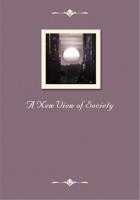2. A: Do you think you could keep the noise down?
B: I,m sorry. Am I keeping you awake?
A: Yes. And another thing, would you mind not making long distance calls?
B: I,m sorry. I thought you wouldn,t mind.
3. A: That radio,s pretty loudly. Could you turn it down, please?
B: Sorry. Was I disturbing you?
A: Yes. And something else, please don,t borrow my clothes without asking.
B: Sorry. I guess I wasn,t thinking. I won,t do it again.
4. A: You don,t have to play that record so loud, do you?
B: I,m sorry. Has it been bothering you?
A: Yes. And please ask me the next time you want to use something.
B: I,m sorry. I meant to ask you.
9. Asking for Change
换零钱
It is sometimes difficult to get change without buying something, so it,s a good idea to carry change with you at all times. If you need change, you can buy something inexpensive like candy or a newspaper and ask for the coins you need.
1. A: Excuse me, but could you give me some change?
B: Let me see. Are dimes and quarters OK?
A: I want to make a long distance phone call.
B: Then you,ll need small change.
2. A: Sorry to bother you, but do you have change for a one?
B: I,ll have to look. What do you want it for?
A: I need it for the parking meter.
B: I can give you quarters, if that,ll help.
3. A: Pardon me, but I was wondering if you could break a one.
B: Let me look. What do you need?
A: I need the change for the stamp machine.
B: I think dimes and quarters will do.
4. A: Excuse me, could you give me change for a dollar?
B: I,ll see what I have. What do you need it for?
A: I want to get cigarettes.
B: You can use quarters, dimes and nickels.
10. Making a Telephone Call
打电话(1)
The telephone system in the United States, as in many other countries, has a special number for each region of the country. It is called as “area code”. If you know the area code and the phone number, it,s usually cheaper to dial the number yourself. Of course, you must go through an operator to make persontoperson or collect calls. You can dial direct to many countries overseas or you can ask for the overseas operator.
1. A: Operator.
B: I,d like to make a collect call to Los Angeles. That,s area code 2134862435.
A: And what,s the name of the person you want to speak to?
B: Susan Greene.
2. A: Operator.
B: Yes, Operator. I,d like to place a persontoperson call to Chicago. The number is 9328647, but I don,t know the area code.
A: Who do you want to speak to?
B: I,ll speak to anyone at extension 214.
3. A: Operator.
B: I want to make a persontoperson call to 2128361725.
A: And the name of the person you,re calling, please?
B: Ed Cooper. That,s Cdouble OPER.
4. A: Operator.
B: Operator, I,d like to place a call to Winnipeg, Canada. The number is 9320806.
A: What,s the name of the party you,re calling?
B: I,m not sure of the name, but the extension is 211.
11. Making a Telephone Call (2)
打电话(2)
When using a public telephone, be sure to read the directions carefully before dialing.
1. A: Hello. Can I speak to Yolanda, please?
B: Hold on, please.
A: Thank you.
B: Sorry, but she,s out.
A: Would you tell her Tom Gray called?
B: I,d be glad to.
2. A: Hello. Is Marie Ward there, please?
B: I,ll see if she,s in.
A: OK.
B: I,m afraid she,s not here.
A: Could you give her a message, please?
B: Yes, of course.
3. A: Hello. Is Mrs. James in, please?
B: Hang on, please.
A: All right.
B: I,m sorry, but I think she,s stepped out.
A: Would you ask her to call Larry Ruskin at 8362550?
B: Certainly.
4. A: Hello. Could I please speak to Miss Davis?
B: Just a minute, please.
A: Thanks.
B: She,s not at here desk right now.
A: Could you tell her to give Doug a call when she gets back? She has my number.
B: Sure.
12. Asking for Directions
问路
People are usually helpful when you ask for directions. You should try to have the exact address and be as specific as possible. Telephone directories are the most common source of addresses. Remember that many cities and some towns are built in “blocks”. People will often tell you, for example, to “go two blocks and turn right”.
1. A: Excuse me, Can you tell me where Main Street is?
B: Turn left at the second light and then go straight for two blocks.
A: Is it far?
B: No. It,s only a fiveminute walk.
A: Thanks a lot.
B: You,re welcome.
2. A: Excuse me. Could you please tell me how to get to the station?
B: Turn left at the first light. You can,t miss it.
A: Will it take me long to get there?
B: No. It,s not far at all.
A: Thank you.
B: Don,t mention it.
3. A: Can you help me out? I,m trying to find a post office.
B: Go three block and make a right. It,s right there.
A: Should I take the bus?
B: No. It,ll only take about five minutes to walk.
A: Thank you very much.
B: Any time.
4. A: Pardon me. I wonder if you could tell me how to get to Mott Street?
B: Keep going straight for two blocks, then turn right on Elm Street and you,ll run right into it.
A: Is it too far to walk?
B: No! It,s only a little ways.
A: Thanks.
B: Sure. Have a good day.
13. Taking a Taxi
乘出租汽车
Taxi fares vary from city to city. In some cities, taxis have meters that tell you the fare. For long rides, it is a good idea to ask in advance what the approximate fare will be. This is especially true if you,re taking a taxi from an airport. You should tip taxi drivers about 15% of the total fare.
1. A: Kennedy Airport, please. I have to be there by 7∶00.
B: I can,t promise anything, but I,ll do my best.
B: OK. That,ll be $12.00, please.
A: Thanks a lot. Here.
2. A: Do you think you can get me to Union station by quarter after?
B: We shouldn,t have any trouble if the traffic isn,t too heavy.
B: You,ve got plenty of time. That,s $7.65, please.
A: Thank you very much. Here,s $10.00. Give me $1.00 back, please.
3. A: The Hilton Hotel, please. I have a 10∶30 appointment.
B: You,ll be there in plenty of time.
B: Here we are. $8.50, please.
A: Thank you. Here,s $10.00. Keep the change.
4. A: Grand Central Station, please. I want to try to catch a 6:00 train.
B: I think you,ll make it if we don,t get stuck in a traffic jam.
B: This is it. That,s $9.15, please.
A: Here.
14. At a Hotel
在旅馆
Hotel and motel rates vary considerably. In major cities and resort areas, it is advisable to have reservations.
1. A: Do you have any vacancies?
B: Yes, we have a nice room on the fourth floor.
A: How much is it?
B: $45.00 a night, plus tax.
A: Can I see it, please?
B: Certainly. Would you come with me?
2. A: Do you have a single room for two nights?
B: We only have a small suite.
A: What,s the rate?
B: $50.00 a night, including breakfast.
A: Fine. Could you show it to me, please?
B: Of course. Just follow me.
3. A: Can I reserve a double room for next week?
B: You can have a room facing the ocean.
A: How much would it be?
B: $55.00, including tax.
A: Could I have a look at the room?
B: Sure. Come this way, please.
4. A: Do you have a double room with twin beds?















